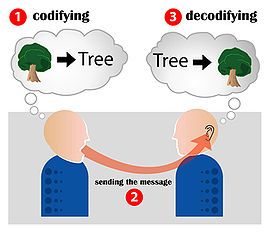
It used to be when I started doing the internet apologetics thing certain atheist certain conventions were in place. Although atheists did seem truly shocked by the prospect that God was not empirical, most of them seemed to accept it. Now they seem universally to be diametrically opposed to even the most veg suggestion that anything could be beyond the empirical, especially god.
The reason is transparent. If God is empirical then the lack of empirical proof counts against belief. So they are willing to give up logically obvious positions in order to get this child's advantage of being able to insist that our little limited view point on this dust mote in a vast sea we have yet to plumb is somehow indicative of real empirical proof of the nature of the universe.
Recently an atheist argued on my message board that parsimony rules out God. This is so ignorant it hurts to think how totally ignorant it is. For one thing, I have an argument that proves the existence of God by parsimony. If God is empirical, and my argument succeeds at proving that he's parsimonious then logically this should prove the existence of God, at least to the extent that that atheist thinks Parsimony would disprove it. But I'm sure he would never admit that. It might interest someone to know that parsimony is not a rule of logic. Its not something that logicians will absolutely endorse. So It's not necessarily a standard of truth. Moreover there are different kinds of parsimony. An idea can be parsimonious in one way and not in a another.
By that term most atheists just "scientific." So to them God is contrary to the rules of science because he's the product of soemthing called "supernatural." They don't have the slightest idea where the concept comes from or what it really says, but they are sure it's stupid and don't' want anything do to with it. So God can't be parsimonious because he's supernatural. I have about eight pages on what the supernatural really is.To get the drift properly please be sure and read them.
God could only be the subject of parsimony if he is the object of empirical investigation. I can see why atheists want this to be true, because they could pretend that they've ruled out God, with their penchant for ignoring God arguments, and their glass half empty outlook which always finds the negative, the dark, the bad, refuses proof, refuses the benefit of a doubt only the cutting edge of doubt. But God is not the object of empriical investigation, nor can he be by definition. thus he cannot be judged by parsimony. The whole idea contradicts phenomenology in the first place. So typical of atheists to cherry pick reality so they accept the schools of philosophy that help them and consign as hog wash any kind of thinking that they can't understand (which is most of it).
God cannot be empirical. There are three reasons. These reasons are deductive. The reasons themselves do not require empirical proof because they are deductive. In fact they could not be empirical and claim to to prove that God is beyond the empirical because they would have to have empirical evdience of God to say that, which would be a contradiction.
The three reasons are absolute:
(1) To be empirical something must be contingent. This is explained by Karl Popper:
empirical facts are facts which might not have been. Everything that belongs to space time is a contingent truth because it could have been otherwise, it is dependent upon the existence of something else for its' existence going all the way back to the Big Bang, which is itself contingent upon something.(Antony Flew, Philosophical Dictionary New York: St. Martin's Press, 1979, 242.)
for a basic explanation of necessity and contingency go here.
God, by definition, cannot be contingent. This same atheist on my board who argued the parsimony thing also tried to content that God doesn't have to be necessary. He also said "just because you think a being is necessary..." Of course he makes several mistakes:
(a) thinking my reasons for this are simply that whatever one believes must be true, so the lie campaign always works eventually to sucker some people.
(b) that god is "a being" he even said "If you think god is an abstract concept then I would actually believe in him. (duh).
these are simple basic axiomatic things that anyone should know before going into a philosophical discussion about God. This just highlights the fact that atheists spend so much of their time dreaming up stupid loopholes in the bible and trying to deny major philosophers that they don't know the basics of God talk.
God is necessary, by definition. That's what the word "God" means as it is used in modern theology. In literal Anglo Saxon of the dark ages it meant something like "superior chief" but that is etymology. That was a long time ago. as the word has come to be used in modern theological parlance it refers to the thing at the top of the metaphysical hierarchy: that which nothing greater than can be conceived; necessary being.
Thus because God is necessary and not contingent, he cannot be the subject of empirical proof.
(2) God is not a thing along side other things in creation, but is the basis of reality: God is being itself.
If we could say the universe contains trees and oranges, and mutt dogs and swizzel sticks and mud pies and jelly and fish and comic books and flt tires and roofs and taxes and stupid people, and God, then they would have a point. What's wrong with this list? God is not just another thing. God created all that stuff and everything else. Nothing would exist without God. So God is not along side jelly and swizzle sticks in creation. As St. John of Damascus said "God exists on the order of Being itself." God is not a product of things in creation, god is the basis of all reality. Thus, God may not be treated as things in creation. God is not contingent because he' snot produced by a prior thing. He's not part of creation, the basis of it, so obviously he can't be given in sense data he can't be understood in a empirical way.
(3) God is eternal.
Because God always was, never came to be, is not dependent upon anything else for his existence, we can say that God, if there is a God, then God had to be. there is maybe. It's not a matter of maybe God might not have existed. God must be either necessary or impossible. this is what Harsthorne proved in this modal argument.
This is the kind of stuff that atheist can't handle because it proves their view is totally wrong a priori. So they are going vomit all over and deny that it means anything and say it's all hog wash. but they are so lazy none of them will ever go look it up. If they would bother too they would see immediately that serious thinker considers the possibly that God might be continent. Even atheists serious thinkers know better than this (but of course not the know nothings on CARM or other atheist dens of stupidity).
Because the concept of God is that of eternal necessary being, God cannot be contingent and since empirical things can only be contingent, God cannot be the object of empirical study.
they never answer any of this. the only think they ever do with it say it's its hog wash, vomit their illiteracy on it and run away.
These arguments prove conclusively and beyond question that God cannot be empirical. Since God cannot be empirical it makes prefect since that there is obvious evidence for god in the starts lining to spell out his name or any of that nonsense. it might just be that God is parsimonious in some sense, but not in the sense of being more scientific, which is I think the way most atheists use it (because they don't know any better).
All of these things require a whole education. These guys are usually too lazy to click on a single link. They would rather ridicule and insult intelligence than to actuality study the products of it.
One final note: it is not a contradiction on my part to say that my Parsimony argument might offer rational warrant to believe, but that God is not a subject of parsimony. I said there is a distinction in types. What atheists mean by it and what I mean by the term are two different things. My argument turns upon being an elegant idea, so God need not be empirical to be judged elegant; all one need know is a concept


